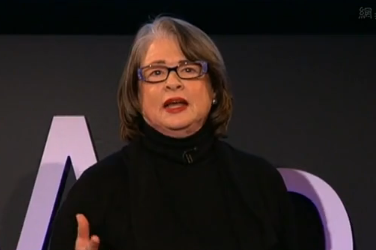(单词翻译:单击)
听力文本
And using this intense study of individuals,
通过这种对个人的密集调查,
we find that it's not one particular generation that's doing better than the others,
我们发现并没有任何一代人比其他人更好,
but the same individuals over time come to report relatively greater positive experience.
但是同一个人随着年岁增长,开始报告相对更积极的体验。
Now you see this slight downturn at very advanced ages.
现在你看到在非常高的年龄。
And there is a slight downturn.
这里有些许下降。
But at no point does it return to the levels we see in early adulthood.
这里的确有一些下降,但是绝没有回复到他们早期成年期的水平。
Now it's really too simplistic to say that older people are "happy."
当然,光说老年人更“快乐”,那太过草率。
In our study, they are more positive.
在我们的研究里,他们更积极。

But they're also more likely than younger people to experience mixed emotions
但他们也比年轻人更能体会到复杂的情感,
sadness at the same time you experience happiness; you know, that tear in the eye when you're smiling at a friend.
悲喜交加,你们知道,就是冲着朋友微笑的同时眼含泪花。
And other research has shown that older people seem to engage with sadness more comfortably.
有其他研究显示,老年人能够更从容地应对悲伤。
They're more accepting of sadness than younger people are.
他们比年轻人更能接受悲伤情绪,
And we suspect that this may help to explain why older people are better than younger people at solving hotly charged emotional conflicts and debates.
我们怀疑这能帮助解释为什么老年人比年轻人更擅长处理激烈的情绪冲突和争论。
Older people can view injustice with compassion, but not despair.
老年人看待不公,能够带着怜悯,而不是绝望。
演讲介绍
20世纪,我们的期望寿命史无前例地大幅增加,但生活质量同步增加了吗?出人意料地——是的!在TED女性大会上,心理学家劳拉.卡斯滕森展示了相关研究,表明人们年龄渐长的同时变得更快乐、更满足,对世界有了更积极的观点。


